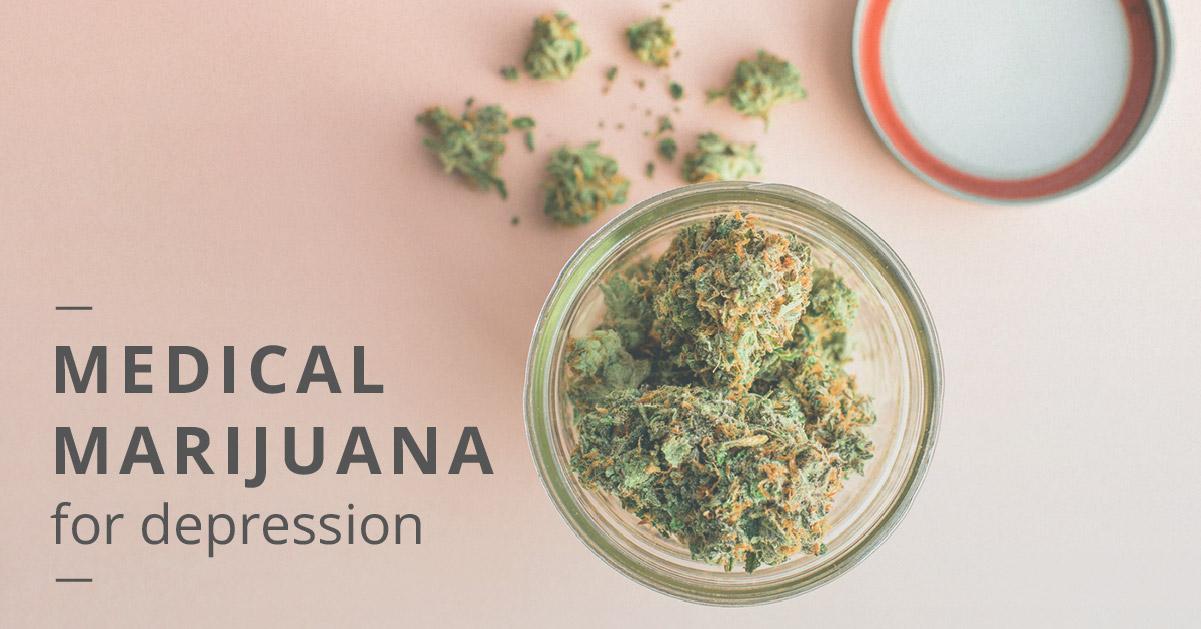REC articles are not the view or opinion of Alpha Extract Administrators
Can Medicinal Marijuana Treat Depression?
If you’ve been feeling sadness you can’t shake or lack of interest in activities you once enjoyed, you may be suffering from depression — and you’re not alone. Depression affects some 350 million trusted Source people across the globe. This common mood disorder is the leading cause Source of disability worldwide. Yet many people who have depression do not get the help they need.
There are many treatments currently available, including oral medications and different therapies. Researchers are beginning to explore medicinal marijuana as an additional treatment. Here’s more about the use of medical marijuana for depression, its benefits, and its possible side effects.
What are the benefits of medical marijuana?
Marijuana can be used as a tool for pain management.
Medicinal marijuana may relieve symptoms of anxiety.
It’s also recognized as a potential treatment for nausea and vomiting related to chemotherapy.
A 2014 study published by the Hawaii Journal of Medicine & Public Health highlighted pain management as a potential benefit of medical marijuana. Participants in the study reported a 64 percent decrease in pain while using marijuana. Many also experienced a decrease in anxiety and better sleep while using the drug.
A 2012 study explored cannabis as a means of controlling spasticity in people with multiple sclerosis. On average, participants had about 30 percent less spasticity while using this treatment.
Other potential benefits include relief from: involuntary movements associated with movement disorders, nausea, sleep disorders
Research on marijuana and depression
The evaluation of medical marijuana for depression is still in its early stages. Right now, researchers share that possible benefits include the restoration of “normal” endocannabinoid function and mood stabilization.
Scientists at the University at Buffalo have begun looking into medicinal marijuana as a possible treatment for depression caused by chronic stress. The school’s Research Institute on Addictions (RIA) has been focusing specifically on brain chemicals called endocannabinoids.
These are naturally produced chemical compounds. They play a role in motor control, cognition, emotions, and behavior. They also have a chemical makeup similar to that of cannabis.
The scientists have performed their studies on animals and not humans. Yet they have discovered that chronic stress may suppress the brain’s production of endocannabinoids. They found that this can lead to depression-like behavior.
Introducing cannabis into the system may help restore normal levels and function. This may ease symptoms of depression.
More studies are needed to assess the true benefits and disadvantages of marijuana as a potential therapy for people with depression.
Risks and warnings
Side effects may vary depending on the method of consumption.
Views are mixed on whether marijuana can lead to depression or treat depression.
Marijuana use may trigger schizophrenia or psychosis in people at higher risk of these conditions. However, research isn’t conclusive.
In a group surveyed about marijuana usage for chronic pain, 71 percent didn’t report any significant side effects. Six percent reported a cough or throat irritation.
There isn’t any clear evidence to suggest that marijuana causes depression. However, there may be a link between the two. Some researchTrusted Source suggests regular or heavy users of the drug are diagnosed with depression more often than non-smokers.
The potential side effects of marijuana use may depend on the way you take it. Medical marijuana can be taken as a spray, pill, or patches. Research is ongoing with traditional recreational methods, such as smoking or vaporizing.
The researchers at University at Buffalo are currently trying to figure out if a certain extract, called cannabidiol, could give the mood-boosting benefits without leading to drug dependency.
Traditional treatments for depression
Treatment of depression is unique to you and the severity of your case. It’s possible to successfully manage and treat mild, moderate, and severe depression.
Mild depression may respond well to psychosocial treatments, such as psychotherapy (also referred to as “talk therapy”). Drugs usually aren’t recommended as a treatment for mild cases of depression.
Psychological treatments, such as behavioral or interpersonal psychotherapy, are also a good first step for people who have moderate to severe depression.
Antidepressants are another tool some doctors use for more severe depression cases. Examples include selective serotonin reuptake inhibitors and tricyclic antidepressants. Drugs can carry potential side effects and should only be used under a doctor’s supervision. Antidepressants must be used with caution in children and teenagers with depression.
Tools for coping with depression
After you and your doctor develop a treatment plan, you can take further steps at home to cope with depression:
Try cutting out extra responsibilities and stressors in your life. Give yourself room to breathe when you’re feeling down.
Add more structure to your day. You can set reminders on your phone when you have events or other can’t-miss responsibilities.
Consider journaling. This can be a healthy outlet for you to openly and honestly divulge feelings of sadness, anger, or fear.
Seek out groups that help with mental health. Your employer or church may have an assistance program that can help. You can also check out the National Alliance on Mental Illness and the Depression and Bipolar Support Alliance.
Try not to isolate yourself. Although this can be difficult when you’re feeling low, having a support network around you has a number of benefits.
Discover new and fun ways to relieve stress and bad emotions. It could be as simple as taking a daily walk, striking some yoga poses, or trying meditation.
The bottom line
Although research in the field looks promising, more work needs to be done to assess whether medical marijuana is an effective treatment for depression. Beyond that, only 24 states and the District of Columbia allow the use of marijuana for medical use at this time.

